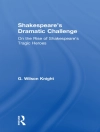In ‘For Love of the King: A Burmese Masque, ‘ Oscar Wilde crafts a lyrical and engaging exploration of themes such as love, betrayal, and the interplay between power and vulnerability. Set against the backdrop of the British colonial experience in Burma, this dramatic work showcases Wilde’s distinctive style through rich imagery and poignant dialogue, reflecting the influence of both Symbolism and Aestheticism. Wilde’s attention to theatricality and vibrant characterization offers a critique of imperialism while immersing readers in the exotic and complex culture of Burma, highlighting the emotional and moral dilemmas faced by its characters. Oscar Wilde, a luminary of the late 19th century, drew upon his own experiences and observations of society to inform his writing. His time spent in Europe and engagement with various artistic movements imbued him with a keen sensitivity to the human condition, allowing him to explore deep psychological and social themes. ‘For Love of the King’ was inspired by Wilde’s fascination with the East and his advocacy for the blending of artistic forms, a reflection of his pursuit of beauty and truth in literature. This remarkable masque is highly recommended for those who appreciate the intricate interplay of emotion and culture in literature. Wilde’s masterful treatment of complex themes invites thoughtful reflection and engagement, making it a fitting addition to the canon of both dramatic and colonial literature. Readers who cherish lyrical prose interwoven with potent social commentary will find Wilde’s work an indispensable experience.
Mengenai Pengarang
Oscar Wilde (1854–1900), an Irish playwright, novelist, essayist, and poet, remains an enduring literary figure, known for his sharp wit, flamboyant style, and infamously dramatic life. Educated at Trinity College, Dublin, and Magdalen College, Oxford, Wilde became a proponent of the aesthetic movement, advocating for art’s intrinsic value apart from moral or social messages. He produced a wide range of work, including the novel ‘The Picture of Dorian Gray’ and plays such as ‘The Importance of Being Earnest’ and ‘An Ideal Husband’. His contributions extended to fairy tales and short stories, exemplified in his lesser-known work, ‘For Love of the King: A Burmese Masque’, a play displaying his interest in exploring love and sacrifice within the constraints of duty and honor. Wilde’s literary style combined elements of Romanticism, Neo-Classicism, and Decadence, often reflecting his personal paradoxes and societal critiques. Despite his eventual imprisonment for ‘gross indecency’ due to the societal norms of his time, Wilde’s legacy as a master of wit, eloquence, and a critic of Victorian prudery endures. His works continue to be celebrated for their literary brilliance and their author’s complex humanity.












